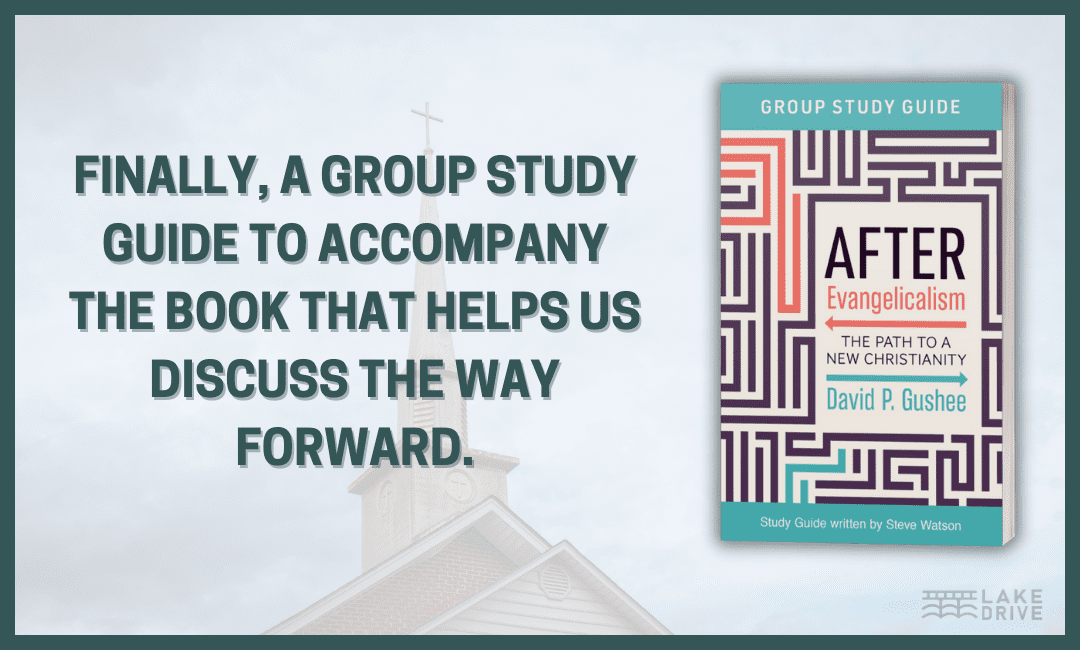Lake Drive Books is pleased to announce that we have published the After Evangelicalism Group Study Guide, written by pastor Steve Watson and based on the bestselling book After Evangelicalism: The Path to a New Christianity, by leading moral thinker and scholar David P. Gushee.
As Gushee writes in his introduction to the study guide:
I wrote After Evangelicalism because there are so many of us who are getting lost in the evangelical maze: inerrancy, indifference to the environment, deterministic Calvinism, purity culture, racism, LGBTQ discrimination, male dominance, and Christian nationalism. I wanted to offer a clear assessment and a new way forward for disillusioned post-evangelicals.
We agree. But it’s one thing to write and read and think about a clear assessment, but it’s entirely different to put it into real-life conversation and share it in words with each other and in community.
This Study Guide Is for Talking about Moving Beyond Evangelicalism, Out Loud.
As Watson, who taught this material at his own post-evangelical church, says:
This guide is meant to encourage people to read and reflect together . . . to help people and communities keep moving forward in our faith. It can be used by an individual . . . but it will be most helpful when used by a group. This group could be two interested friends, a book club, a small group inside or outside of a church, or a church class or program. Former evangelicals looking for new ways forward, current evangelicals who have tensions with their affiliation or faith, as well as other people—Christian or not—who are curious about the impact of this movement, can benefit from reading this book.
That’s it. That’s the idea. To talk in community. From whatever perspective you may have (and there are plenty). And to make it all much more real.
Perhaps the number one aspect to moving beyond evangelicalism is the potential of a very real loss of community. But it can also be a sense of psychological loneliness, too, regardless of what happens with actual community. So talking about moving beyond evangelicalism is both important to human community, but also to a sense of self and health.
The study guide encourages participants to share their personal stories, allowing for a deeper understanding of their unique journeys. It provides prompts and discussion questions that foster an environment of trust, empathy, and openness.
This targeted guide is poised to become a valuable resource for those seeking to engage in thoughtful discussions and find new paths in their spiritual journeys.
We encourage you to get a copy of both After Evangelicalism and the After Evangelicalism Group Study Guide. Read the book. Find people with whom you can discuss these issues. Read the study guide, where there’s even a super helpful “norms for group discussion” that will prompt you to be respectful, vulnerable, and be sure to give everyone a voice.
The After Evangelicalism Group Study Guide is sure to spur so much fruitful conversation and human connection. We need that now as much as ever.
We’d also like to express thanks to Westminster John Knox Press, the publisher of After Evangelicalism, which cooperated with Lake Drive Books in the creation of this study guide.


